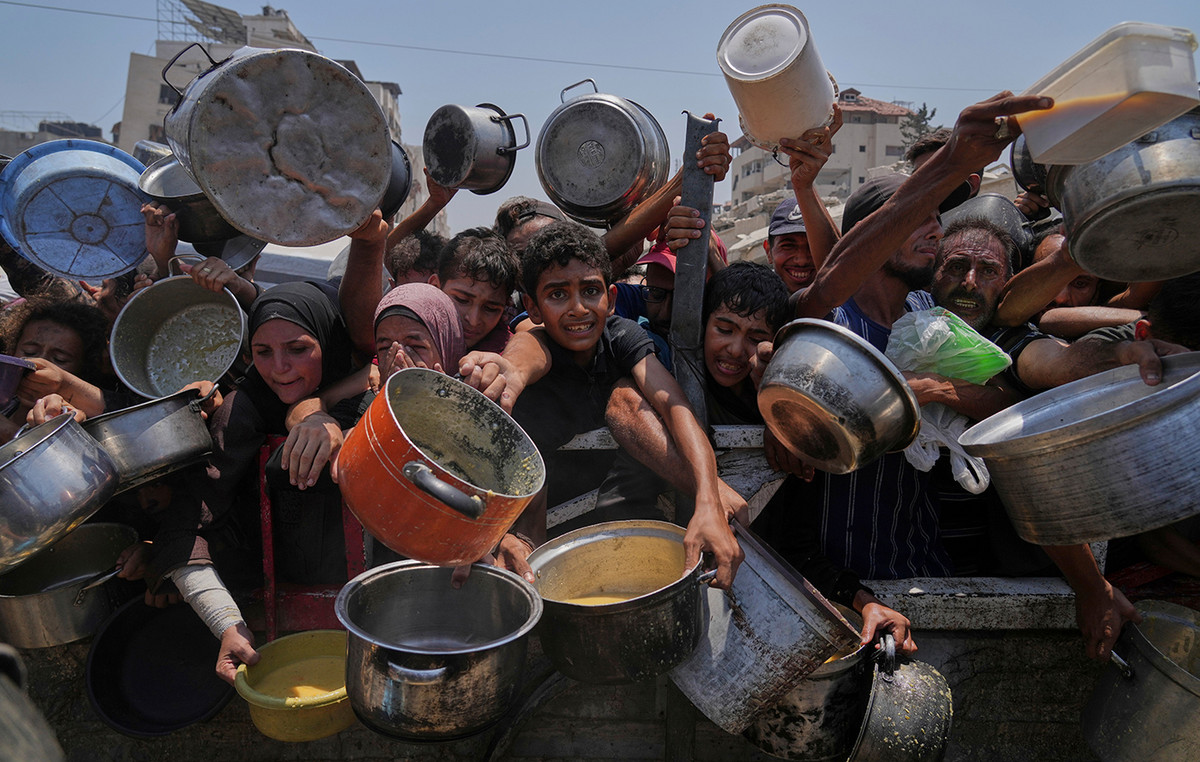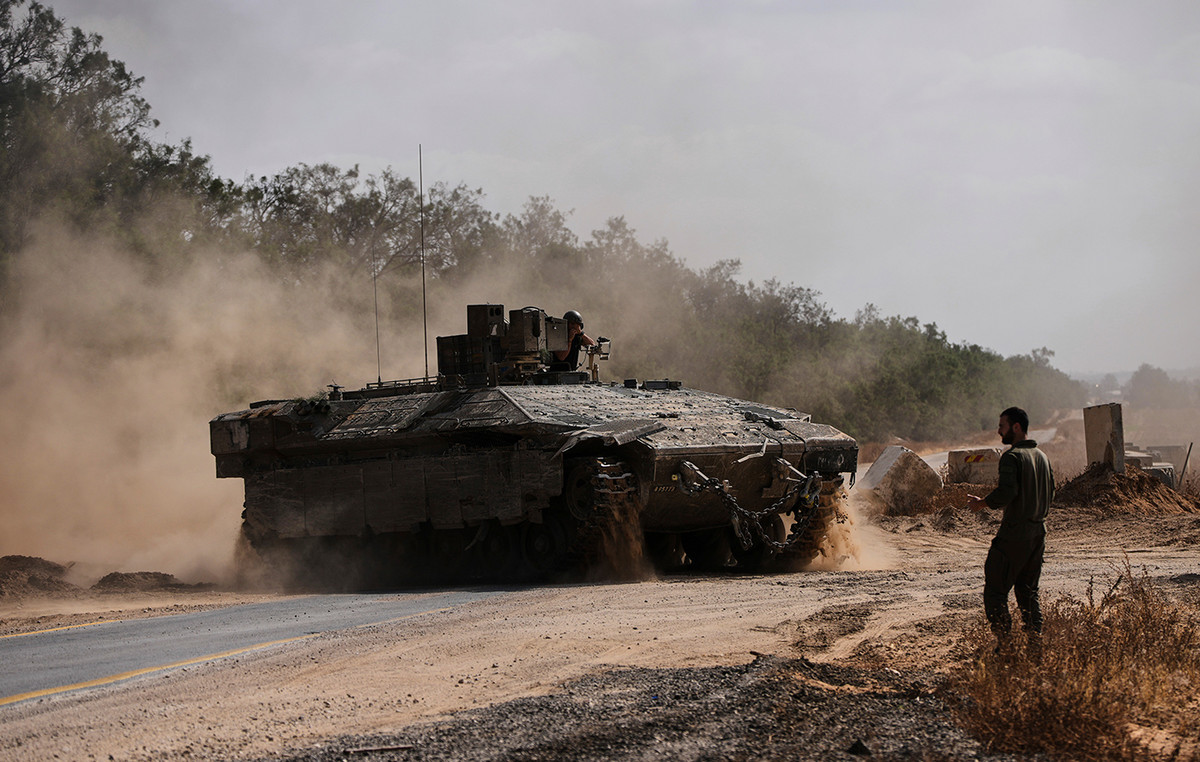On January 20, the National Health Surveillance Agency (Anvisa) authorized the use of the Coronavac vaccine against Covid-19 in children and adolescents from 6 to 17 years of age in Brazil.
The request made by Butantan covered the age group from 3 to 17 years old. However, Anvisa’s technical team indicated gaps in the effectiveness and safety studies for the population aged 3 to 5 years and immunosuppressed.
This Friday (11), Anvisa received a new request from the Butantan Institute to include the age group from 3 to 5 years in the indication of Coronavac. According to the agency, the evaluation period is up to seven working days and starts counting from Monday (14).
The director of the Brazilian Society of Immunizations (SBIm), Renato Kfouri, explains that Anvisa’s evaluation follows strict international criteria, including the analysis of the quality of the data presented in the expansion request.
According to him, the data available at that time on studies of Coronavac in the pediatric population aged 3 to 5 years were still limited. “The expectation of approval is not a function of age or who uses the vaccine in other countries, but the quality of the data that is presented to justify the registration”, he says.
Authorization in other countries
Coronavac is already used in children and adolescents in different countries, including China, Hong Kong, Chile, Ecuador, Colombia, Thailand and Cambodia.
China authorized the use of the vaccine in children from three years of age in June 2021. Chile announced the change in the age group in September, initially covering children aged 6 to 12 years. The expansion to the age group over 3 years was approved by the Chilean health agency in November.
Colombia started vaccinating children with the vaccine in November 2021. As of early February, 4.2 million children aged 3 to 11 years had already received the vaccine.
In January, Thailand authorized the use of Coronavac in children and adolescents aged 3 to 17 years. In February, it was the turn of Cambodia, Ecuador and Hong Kong.
Characteristics such as efficacy, safety and ability to generate an immune response were evaluated from clinical trials in different countries, such as South Africa, Chile, Malaysia, Philippines and Kenya.
Countries such as Malaysia, Dominican Republic and Paraguay have approved the administration of Coronavac for children over 5 years old.
Induction of the immune response
Phase 1 and 2 clinical studies carried out in China, where the vaccine is already widely used among children and adolescents, showed that the immunizer led to the production of antibodies in more than 96% of volunteers aged 3 to 17 years.
In the trial, the researchers evaluated two different dosages, 1.5 μg and 3 μg. In the first stage, all individuals presented neutralizing antibodies. In phase 2, the production of specific antibodies reached 96% among those who received the lowest dose and 100% for those immunized with the 3 μg dose. The findings were published in the scientific journal Lancet Infectious Diseases.
In Chile, preliminary phase 3 results showed that children over 3 years of age have higher antibody production than adults vaccinated with Coronavac. In the survey, carried out in partnership with institutions from other countries, 14,000 volunteers were recruited.
The data were presented by researcher Susan Bueno, from the Pontifical Catholic University of Chile, during an event held by the Butantan Institute in December.
Preliminary reports from the clinical study conducted by the Millennium Institute of Immunology and Immunotherapy at PUC Chile also showed that children have fewer adverse reactions.
The most reported cases in children participating in clinical trials are pain and redness at the injection site. Regarding later adverse events, symptoms such as fever, cough and vomiting were reported in a small part of the group.
Safety
Confirmation of the safety profile is one of the main requirements for authorization to expand the use of a vaccine in a new age group by Anvisa.
Regarding Coronavac, a phase 3 clinical study carried out by Sinovac in South Africa found that the vaccine had no serious adverse effects. The research had the participation of 200 children, from 6 to 35 months.
In 2021, about 4,000 children of different ages were immunized in the African country, without experiencing adverse events.
The clinical trial is also ongoing in Chile, Malaysia, the Philippines and Kenya. In research, the safety and ability to produce an immune response in children will be evaluated.
In 2021, at least 27 children aged between seven months and five years received a dose of Coronavac by mistake in the cities of Diadema and Itirapina, both in the state of São Paulo. As a safety measure, the children were followed up by pediatricians for 30 days. During this period, only one had mild symptoms, with no other adverse events.
Based on the case, scientists from the Adolfo Lutz Institute, the Emílio Ribas Institute of Infectious Diseases and the São Paulo State Health Department carried out studies to verify whether the children had developed some type of immunity from the vaccine.
The children underwent serology tests and methods that allow the detection of neutralizing antibodies. The results showed that they had IgG antibodies at a high level, which indicates the vaccine’s ability to generate an immune response in this age group.
Analysis of effectiveness: the case of Chile
Coronavac has been widely used in Chilean children and adolescents since the end of 2021. The first results of studies on the effectiveness of the use of the vaccine in the country in this age group have been released recently.
Unlike efficacy trials, which pertain to studies conducted in controlled environments, such as those conducted during vaccine development, effectiveness data reflect the results of vaccination in practice in large populations.
A study carried out in Chile showed that the application of Coronavac in children and adolescents aged 6 to 16 years showed an effectiveness above 90% in preventing hospitalizations associated with Covid-19.
The researchers evaluated data from 2 million children and adolescents divided into two groups: immunized with two doses of Coronavac and unvaccinated. In all, 12,735 infections by Covid-19 were observed, with 207 hospitalizations and 30 admissions to Intensive Care Units (ICUs).
Among those vaccinated, the effectiveness of Coronavac was 74.5% to prevent infection, 91% against hospitalizations and 93.8% to avoid ICU admission. The effectiveness against deaths was not estimated, as no deaths were reported in this age group during the study period.
The research was carried out by the Chilean Ministry of Health, the Pontifical Catholic University of Chile and Harvard University, in the United States. The results were published on the pre-prints platform, non-peer-reviewed studies, of the journal Lancet.
Source: CNN Brasil







